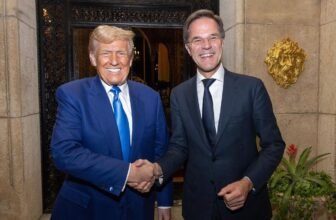
In a significant shake-up within the U.S. Department of Justice, veteran federal prosecutor Denise Cheung has resigned from her position in the U.S. Attorney’s Office for the District of Columbia. The resignation follows a directive from Ed Martin, Donald Trump’s interim U.S. Attorney for the District, ordering her to pursue a criminal probe and freeze bank assets related to a Biden-era government contract.
Background of the Resignation
With over 24 years of experience in the U.S. Attorney’s Office in Washington, D.C., Denise Cheung was instructed to initiate a grand jury investigation into a Biden administration-awarded contract. She determined that the request lacked sufficient evidence and declined to proceed. Following this, she was further instructed to freeze the contract recipient’s assets, preventing them from accessing government funds. Citing legal and ethical concerns, Cheung refused to comply with the orders, ultimately leading to her resignation.
Implications for the Justice Department
Cheung’s departure adds to the growing list of career prosecutors resigning in protest against what they view as political interference by the Trump administration. Ed Martin, who has been embroiled in controversy for his involvement in the “Stop the Steal” movement and support for January 6 defendants, has faced scrutiny for his leadership. His recent nomination by Trump to permanently head the D.C. U.S. Attorney’s Office has further fueled concerns over the politicization of prosecutorial decisions.
Wider Context of Political Interference
This resignation is part of a larger pattern of instability in the Justice Department. In recent weeks, several high-profile resignations have taken place, allegedly in response to politically motivated orders. A key example is the resignation of Danielle Sassoon, Acting U.S. Attorney for the Southern District of New York, after she was directed to drop corruption charges against New York City Mayor Eric Adams. These developments highlight the growing conflict between career prosecutors and political appointees who appear to be influencing legal proceedings.
FAQ
Why did Denise Cheung resign?
Denise Cheung resigned after refusing to open a criminal investigation and enforce a bank asset freeze on a Biden-era government contract, citing insufficient evidence and ethical concerns.
Who is Ed Martin?
Ed Martin was appointed as interim U.S. Attorney for Washington, D.C., under President Trump. He is known for his involvement in the “Stop the Steal” movement and his defense of January 6 defendants.
What does this mean for the Justice Department?
Cheung’s resignation has intensified concerns over political interference, with career prosecutors increasingly at odds with political appointees over the direction of federal prosecutions.
How is this connected to other recent resignations?
Several other prosecutors, including Danielle Sassoon, have resigned in protest against politically driven directives, signaling a widening divide within the Justice Department.
What could these resignations lead to?
The loss of experienced prosecutors could weaken the Justice Department’s effectiveness and erode public trust in the impartiality of the federal legal system.
Share Your Thoughts
Do you believe these resignations signal a larger issue of political influence in the Justice Department? Join the conversation in the comments below!






